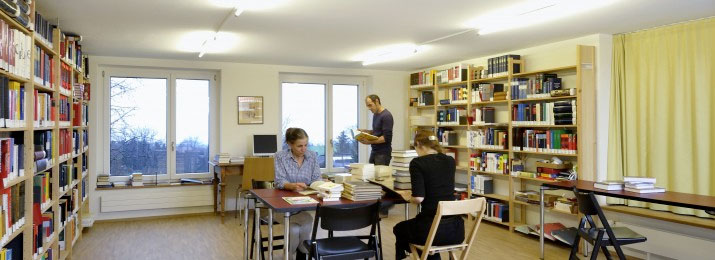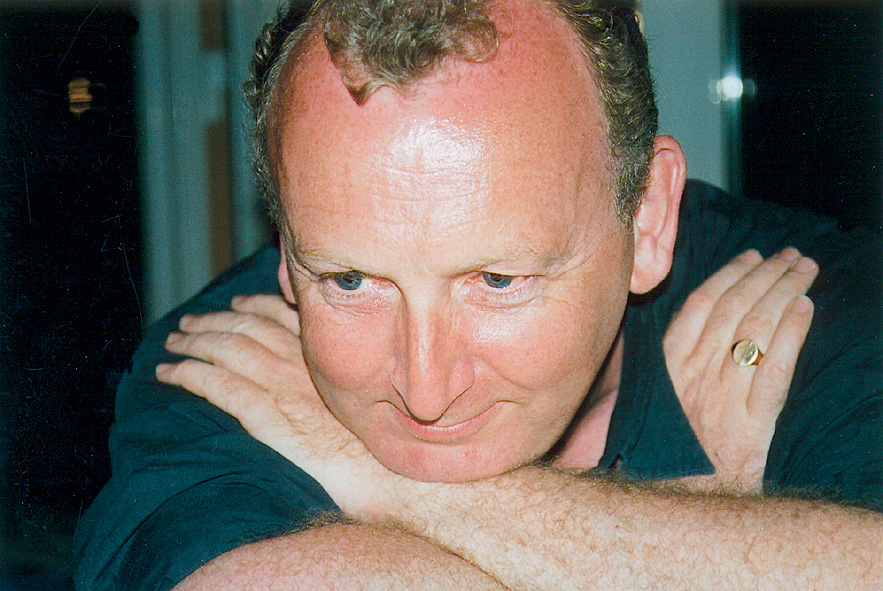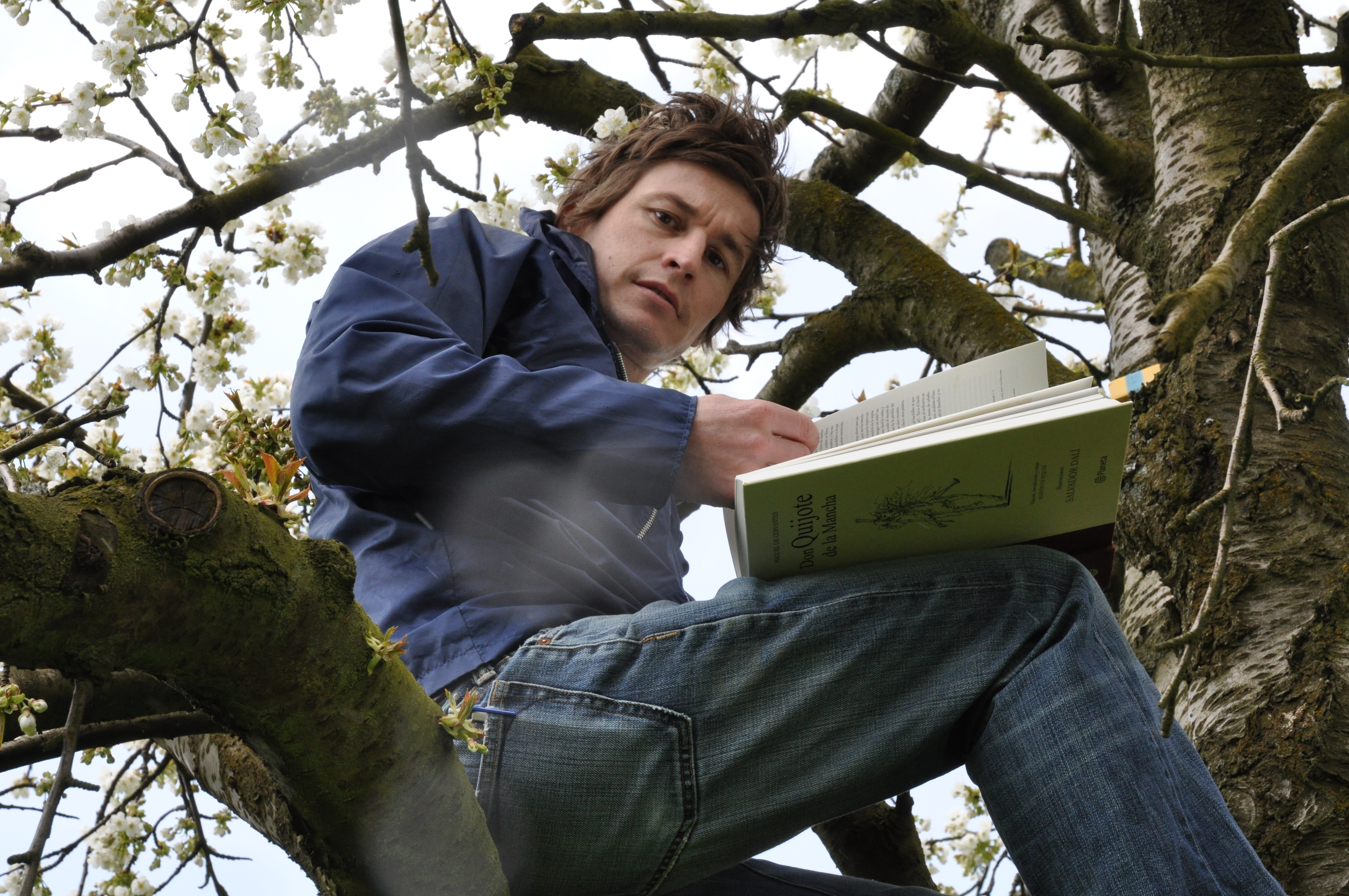Swiss centre is a mecca for translators

Probably no-one in the world can read all the languages of the books on the shelves of the Looren House. Many have been translated by its guests: English to Lithuanian, French to Romanian, Spanish to Greek.
Located in an idyllic setting just outside the village of Wernetshausen above Lake Zurich, the house gives literary translators from all over the world a place to work on their own projects in peace, while at the same time offering them the chance to exchange experiences, whether linguistic or practical.
Asked for the most exotic language combination they have yet had, managing director Gabriela Stöckli suggests Catalan into Hindi. And then they once had someone translating from Lak – a language spoken in the Russian Caucasian republic of Dagestan – into Russian.
“It was a language I didn’t even know existed,” she admitted to swissinfo.ch.
“This was part of a small programme for endangered languages, which is something we would like to promote a little more.”
Despite the mix, it’s rare for a translator not to share a language with at least some of the others; when swissinfo.ch visited, the German to English translators were helping to bridge the gap between the German-Turkish translator and his Russian-English counterpart.
Discussions are wide-ranging Stöckli says, from specific linguistic questions, to exchanging tips about books worth translating, dealing with publishers and finding contacts.

More
A Scottish translator of Swiss literature
No easy job
Non-linguists probably don‘t realise the full range of challenges literary translators have to deal with. Knowing the source and the target language inside out are just the beginning.
Of course, the challenge is part of the fun. Cemal Ener is translating the Swiss writer Robert Walser (1878 – 1956) from German into Turkish. Walser is regarded as quite a difficult author even by native speakers. But understanding what it means is only part of the story as far as Ener is concerned. He once attended an international workshop of Walser translators.
“We were given a short text to translate. Every sentence started with an assertive “I”. That was a big problem for me, because in Turkish the personal pronoun isn’t usually expressed explicitly. It’s contained in the verb form. It would sound really artificial and odd to say “I” each time. But my Japanese colleague had just the opposite problem, because in Japanese they have lots of different pronouns for the first person, and which of them should he choose?”
Rhythm and music
What makes a good translator? Ener is in no doubt.
“You must have an ear for your own language – and even more for the foreign language. Translation is a work of deconstruction. First you must destroy in order to build up again.”
Donal McLaughlin, who translates from German to English, and is also a writer himself, says his aim is to capture the “music and rhythm” – whether of poetry or prose.
“It’s very, very important to listen. Both my writing and my translating are influenced by, I hope, the fact that I have a ‘good ear’, as people say.”
He has translated a number of modern Swiss German authors; the latest to appear is the Swiss dialect novel Der Goalie bin ig by Pedro Lenz which he has rendered into Glaswegian: Naw Much of a Talker.
The house is situated just outside the village of Wernetshausen, above Lake Zurich.
Since 2005 it has offered professional literary translators quiet surroundings to work and study for several weeks.
It has eight single and two double rooms, with internet access and phones. In 2012 it hosted guests from more than 30 countries.
It is operated by a non-profit association and is largely privately funded.
It is open to literary translators of any nationality with at least one published translation and a contract for a current project.
Any language combination is accepted, but there is a special programme, with targeted grants, to encourage translations of Swiss literature, run in conjunction with the Swiss Arts Council, Pro Helvetia.
The cost to the residents is minimal, but they have to fund their own travel and buy their own food.
The house also arranges workshops and public events of various kinds.
Its Open Day on September 7, 2103 features the Chinese dissident writer Liao Yiwu whose work is banned in China; translators have been instrumental in making his work known.
It collaborates with the Solothurn Literary Days, for example in the “transparent translators” event where the public can watch translators at work and ask questions or make comments.
For many of its activities it works together with other Swiss institutions and with similar organisations abroad.
Language awareness
It is not just a matter of knowing two languages extremely well: it is a matter of sensitivity to them too.
Both Ener and McLaughlin learned German at school, but Sergey Levchin, another guest at the house, was born in the Ukraine, moved to the United States as a child and thinks of himself as totally bilingual in Russian and English. For him, it was the experience of moving that was crucial.
“I think the ‘translator me’ was born some time after I moved to the United States. Having the constant need to navigate between two languages has certainly shaped my personality and my destiny to a great extent,” he told swissinfo.ch.
McLaughlin had a similar experience – although in his case he swapped one form of English for another. Born in Derry, in Northern Ireland, he moved – emigrated, as the family called it – to Glasgow in Scotland at the age of nine.
“I was very aware as a child of different words for things. When I first arrived in the west of Scotland I found it immensely difficult to understand the locals. Perhaps it was good preparation for dealing with Swiss German one day!”
“I was interpreting at a very young age, because I was telling my mother what the neighbours were saying. The skills acquired at that age in that way I guess led to McLaughlin the translator, and McLaughlin the literary interpreter later.”
A helping hand
The Looren House does what it can to smooth the way. Each translator is given a small room, with a bed, desk, phone and internet access and a fridge. There is a shared kitchen and dining area and a huge common room (book-lined, of course). Downstairs is a library with reference books in dozens of languages – as Stöckli pointed out, while the internet is a great resource, not everything can be found in it. Books are still a vital aid, especially when it comes to obscure and archaic terms.
Looren also arranges a range of workshops. It is one of the venues for a programme called Vice Versa, focussing on German and another language. Another programme, in cooperation with the European Union, gives professional training to young translators.
Then there is its annual open day. This year it takes place on September 7, and features a discussion with Chinese writer Liao Yiwu and his German translator. Liao’s work, much of which focuses on discussions with people from the lower rungs of society, is forbidden in China: it has become known to a wide audience largely through translation.
Proof of the pudding
About a third of the translators who stay at the Looren manage to make a living out of it, but it’s not easy.
McLaughlin said he was prepared to make “any sacrifice” to do so. Levchin was initially forced to keep the wolf from the door with technical texts – like a handbook for oil rigs – but can “mercifully” now concentrate on things that interest him. But Ener cheerfully admitted Swiss writer Walser doesn’t have much of a readership in Turkey. He does not depend on his translations for a living, but also works as a publisher’s reader.
Translators come in different shapes and sizes – and languages – but the Looren House caters for them all.

In compliance with the JTI standards
More: SWI swissinfo.ch certified by the Journalism Trust Initiative


You can find an overview of ongoing debates with our journalists here. Please join us!
If you want to start a conversation about a topic raised in this article or want to report factual errors, email us at english@swissinfo.ch.